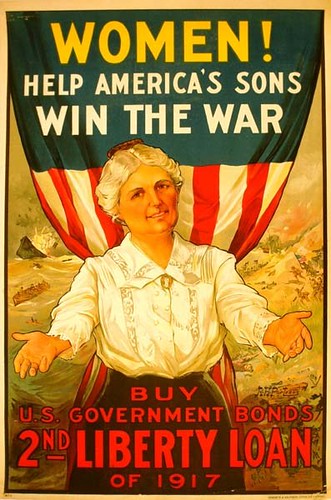The Slumber of Three Thousand Years
Submitted by Victoria McGouran on Wed, 02/13/2013 - 11:23http://dl.lib.brown.edu/pdfs/1303305402406379.pdf
In an article by Francis Grierson called "Woman's New Era" that can be found on pg. 10 in The New Freewoman, Grierson states that in the past fifty years there have been five great movements - one of which was "the awakening of women after a slumber of three thousand years". Grierson goes on to assert the belief that women have been "revolving in a vicious circle around a centre composed of social, political, and religious negations and not until recently have they possessed sufficient illumination to help themselves". Now, while Grierson believes that this "illumination" is the result of cyclic thinking that can only come from psychic spirituality (which if I'm being completely honest, sounds like absolute balderdash), it is Grierson's assessment of the suffrage movement that I found to be the most important (and incidentally, illuminating) opinion in the article.
Grierson seems to believe that a great deal of suffrage issues at the time were the fault of women themselves and states that "mere votes will never be of any great service to women if the old order of materialistic control is permitted to continue". While this statement can be understood in many different ways, reading it in context I think that Grierson was saying that while women are still controlled by their husbands or fathers through materialistic means and refuse to think for themselves, they will vote in the same manner as their male overlord and the primary aims of suffrage will never be realized. What interests me most about this perspective is that it does not really blame males for the problems of the female, but rather blames females for their present condition and calls on them to become independent thinkers. Additionally, the idea of changing the condition for women by merely learning to think rather then relying on sentimental opinions is unorthodox to say the least.
Grierson begins to conclude the article by saying that "with the passing of ancient Greece, the world lost its sense of reason and took to sentimental opinions, and an opinion holds the same relation to truth that sentiment holds to a sum in arithmetic". This I think, perfectly sums up the argument that Grierson was making and serves as a call of sorts to revert to Ancient World reason while forging on towards a new era for women.









